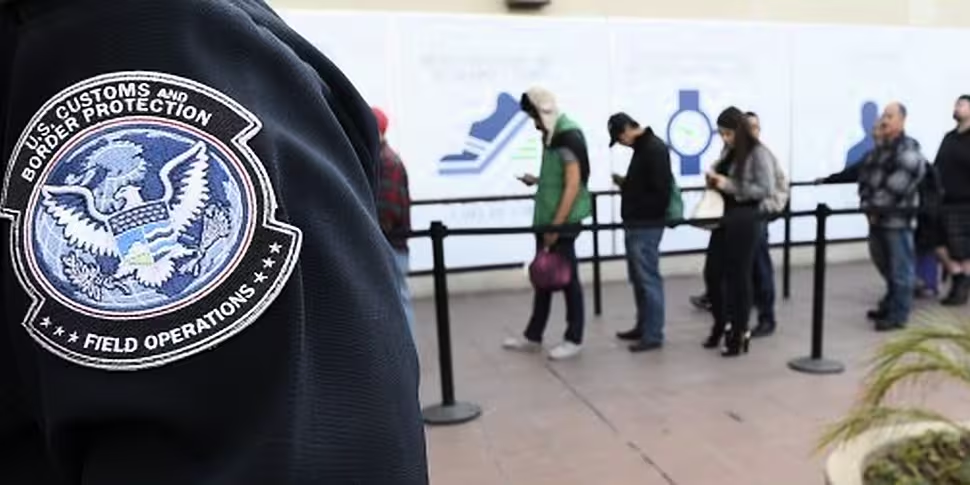New visa criteria for entering the United States from six mainly Muslim nations have come into force - meaning only those with close family or business ties are exempt from the travel ban.
The move came after the US Supreme Court voted to partially restore President Donald Trump's executive order, which was widely criticised as a ban on Muslims.
The 90-day ban on visitors from Iran, Libya, Somalia, Sudan, Syria and Yemen, and 120 day ban on refugees, will allow exceptions for people with "close family relationships" in the US, including parents, spouses, children, sons- and daughters-in-law, siblings and step- and half-siblings.
But "close family" does not include grandparents, grandchildren, aunts, uncles, nieces, nephews, cousins, brothers-in-laws and sisters-in-law, fiances and any other "extended" family members, State Department guidelines say.
In a statement, the US Department of Homeland Security says: "The department expects business as usual at our ports of entry upon implementation of the EO today.
"US Customs and Border Protection officers are trained and prepared to professionally process in accordance with the laws of the United States persons with valid visas who present themselves for entry. We expect no disruptions to service."
The travel restrictions do not apply to:
- Lawful permanent residents
- Any foreign national admitted to or paroled into the United States on or after June 26th, 2017
- Any foreign national who has been granted asylum, any refugee who has already been admitted to the United States
- Any foreign national who has a document other than a visa, valid on June 26th, 2017 or issued on any date thereafter, that permits him or her to travel to the United States and seek entry or admission, such as an advance parole document
- Any dual national of Iran, Libya, Somalia, Sudan, Syria, and Yemen who is traveling on a passport issued by a country other than one of those six countries
.@DHSgov statement on Donald Trump's newly-activated travel ban: pic.twitter.com/tBxj4Zqwsw
— Jack Quann (@jqbilbao) June 30, 2017
The Trump administration insists the ban was necessary to protect the country from terror threats, and to give immigration authorities more time to tighten vetting of travellers and refugees.
"As recent events have shown, we are living in a very dangerous time, and the US government needs every available tool to prevent terrorists from entering the country and committing acts of bloodshed and violence," a senior administration official said.
But as travel officials across the US were making final preparations for putting the ban into place, opponents were preparing new legal moves.
The American Civil Liberties Union (ACLU) called the new criteria "extremely restrictive," ''arbitrary" in their exclusions and designed to "disparage and condemn Muslims".
Hawaii filed an emergency motion asking a federal judge to clarify the scope of the travel and refugee bans in the Pacific island state - and who, specifically, the ban refers to when stating that only an immigrant's close family members can travel to the US.









